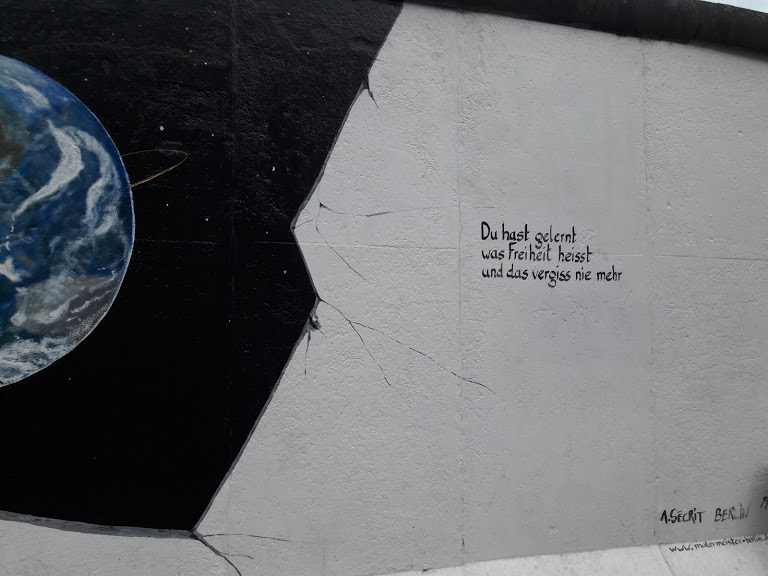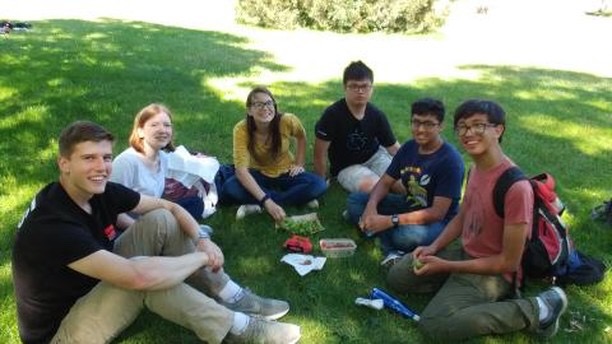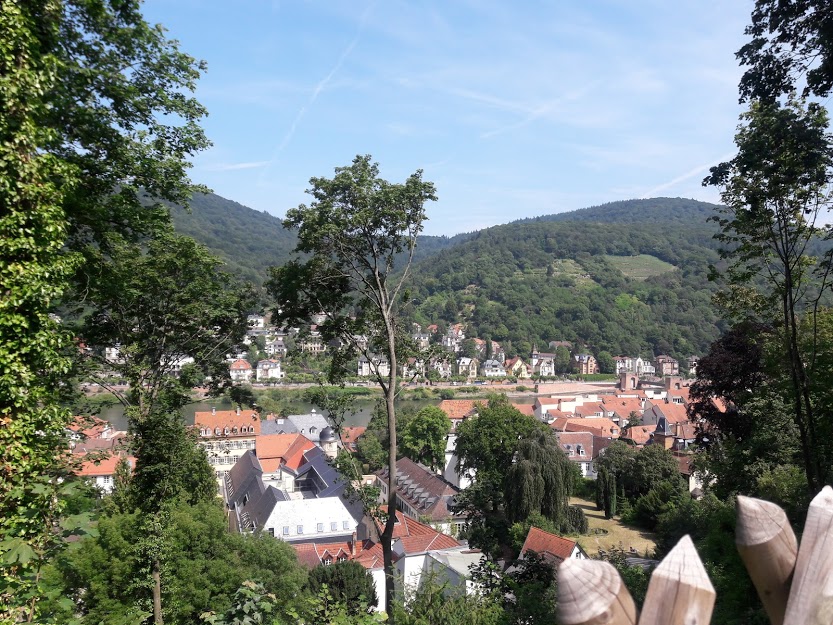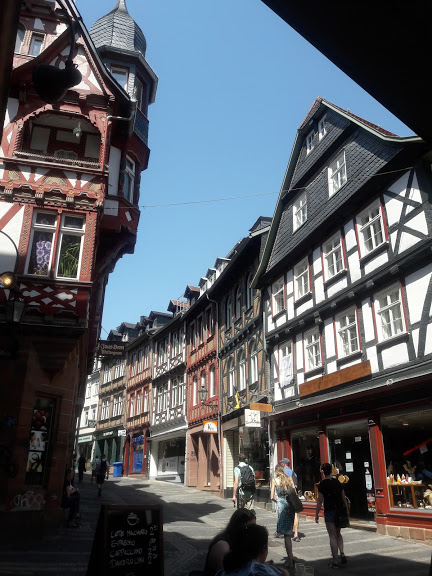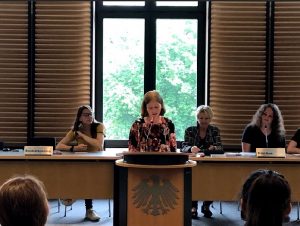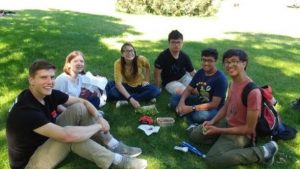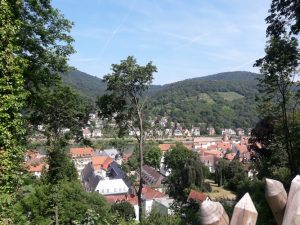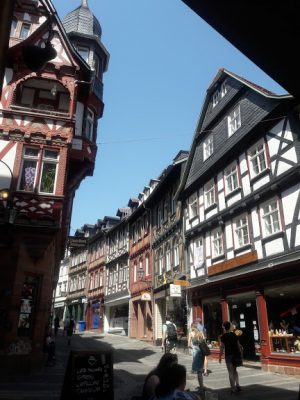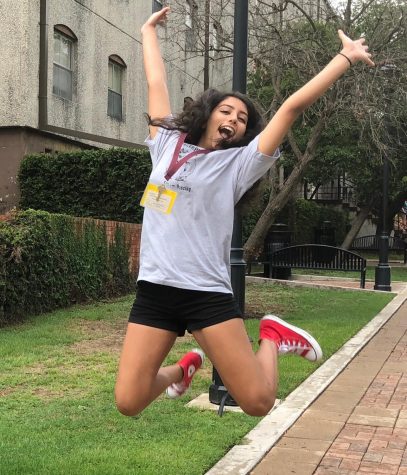Violet Burns ’21 Visits Germany on Study Trip
August 11, 2019
Students did many things to keep busy over the summer- relaxing, studying, travelling. But how many of them got to go on a study trip to a country about 5000 miles away? Violet Burns ‘21 was one of those lucky few. Through a scholarship from American Association of Teachers of German (AATG), she was able to go to Germany and learn their culture through the eyes of a resident, not a tourist.
“This was a scholarship study trip I won through taking a test, getting a high score, and applying,” Burns said. “It was a PDF that I had to answer essay questions in German and English, which had questions like ‘How is German applicable in your future?’ and ‘What kind of culture are you expecting?’, and things along those lines. It was all really challenging. I had to get the grammar perfect, and was only allowed to use a dictionary. And it was more thinking about how to express myself in a language that I didn’t completely understand, and writing consistently the entire way.”
It took two weeks for Burns to finish her application. Once she sent it in, a national committee decided who got to go on this three and a half week trip. After a tension filled month and a half of waiting, Burns finally found out that she had been selected for this nationally recognized scholarship program.
“[I was] over the moon when I found out I had gotten in,” Burns said. “I just had no idea what it would be like, and I just knew there were so many possibilities for where I would be, what my family would be like, what experiences I was going to have. I was super excited.”
Initially after getting there, it was a bit hard for Burns to adapt to a whole new place. There were nuances to the language she still had to learn, but she was able to overcome her difficulties quickly.
“I talked a lot with the native speakers and asked them a lot of questions, even before I had a problem,” Burns said. “I asked ‘Why do you use this word for this?’ or ‘Why do you do this thing?’ They always drilled it into us that rule number one was to always ask questions. And that actually helped. I resolved a lot of problems that way.”
Some of the help Violet received came from her host family. This family housed her for the duration of her stay, and she attended school with her host brother. This experience led her to form a close bond with them, and learn to live as a German teenager.
“My host [family] was really cool, we got along really well.” Burns said. “They were super great hosts, and I learned so much from them. My host mom was a lawyer, and my host dad worked with an IT company. And my host brother played American football, liked to party, and was popular. For the most part, I would go to school with him, and did whatever he did after school.”
School was incredibly different for her halfway across the world.
“It was really interesting the way [it] was set up. You [mostly] stay in your own classroom and the teachers rotate,” Burns said. “So we got to kind of decorate our classroom. We also had a religion class, which is so different from what we have because we’re so focused on having religion not in the school. There was a lot more focus on science than we have- it’s basically mandatory. And they also have more freedom with their language choices but they have to take English.”
The cultural difference didn’t just affect her education, it was also seen in the behavior and laws of German residents. For example, things that are considered offensive in the United States are not offensive there, and vice versa.
“[One thing] that was awkward was that we had to put our hands on the table when eating a meal,” Burns said. “We use a utensil most of the time, but you will put your hands on the table even when you’re not using the utensil as a part of the meal. [Some of the Germans] were shocked that we have cars, and drive at 16. [What] they’re thinking is then you’re responsible for the lives of others in your car, and you’re too young for that.”
After spending some time with her host family, Burns was able to take a trip to Berlin with other students on various study trips. During this part of her experience, she was able to meet other students passionate about German. While some came from the United States, others had travelled from places all around the globe.
“The hotel [we stayed at] had breakfast for us, so we got to dine with not only our group of Americans but also groups with people from Norway, South Africa, Brazil. And we all just told each other things that we had learned about Germans and discussed our home,” Burns said. “It was really, really mind opening to see how many different people care about the German language.”
Berlin was where all these students were able to view cultural landmarks and learn about German history. One of these important places was the German congress building.
“My favorite memory has to be going to the German government,” Burns said. “We just finished seeing the building and the [guides] let us into the side room, and they were like ‘okay, we’re going to have a mock congress.’”
This experience gave all the kids a chance to express their views on an issue, and act like members of the German government. Though no mock resolutions were passed, it was still interesting for Burns to experience this.
“It was amazing to hear all these arguments crafted by people who did not speak German as their native language, and to see what other people thought,” Burns said.
This trip, though short, still made a large impact on Burns. It inspired her to start thinking about a future as a German college student, and taught her more about the world.
“I learned that there are so many people. I learned that people can live a totally different life from you, and you can still live in their house and learn from them. And furthermore you can experience the kindness of people you’ve never met before,” Burns said. “[For instance] every single time I walked into the classroom, somebody would willingly give up their chair for me. And that kind of experience showed that these people really cared about us.”
Finally, this whole experience led to self-reflection and a lot of personal growth for Burns. She went to Germany as a girl who had never travelled outside the country before, and came back with more knowledge of herself and the world around her.
“I think it’s made me more aware of what being independent really means,” Burns said. “I was never alone there, and I found a lot of help and guidance. [But I learned] I can get it without it being smothering and I like that I’ve learned that.”

